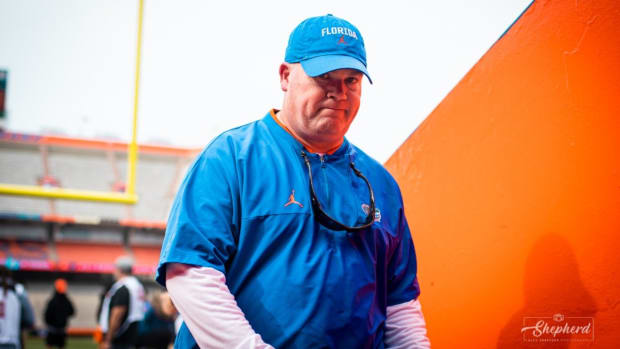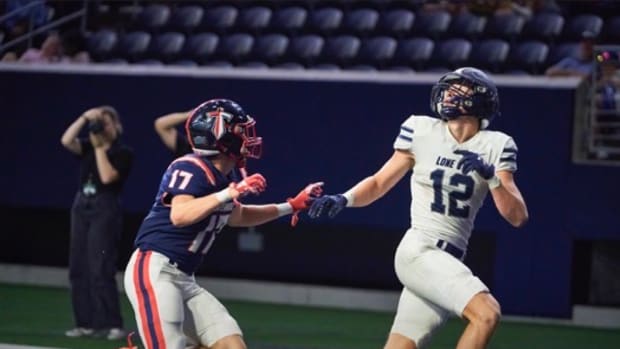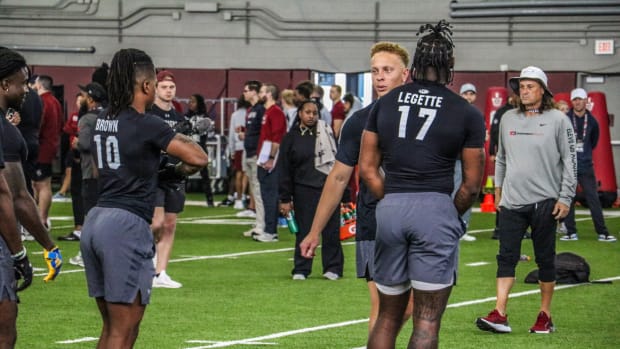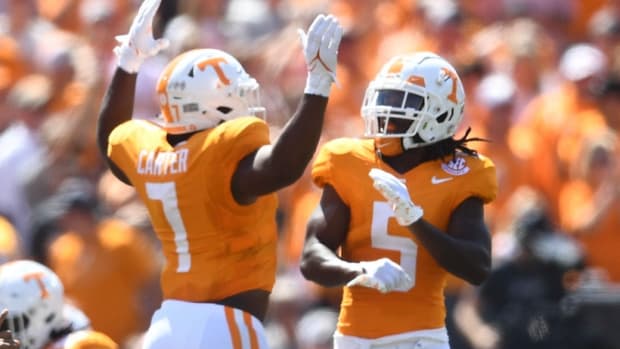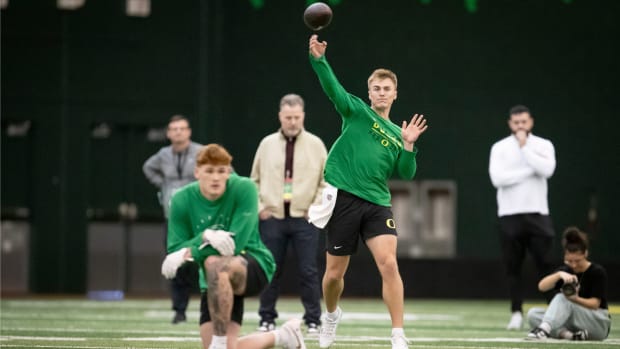Urban Meyer Will Join a Short List of Recent Coaches Who Served In-Season Suspensions
Gary Pinkel, the stoic and cautious former Missouri head coach, probably would not have made the call, but Dave Steckel, his defensive coordinator, was in charge for this game.
“F--- it!” Steckel yelled into his headsets, “let’s go for it!”
On the sideline as a junior receiver, T.J. Moe remembers hearing the call. The Tigers, already trailing 14–0 to Texas Tech, went for it on fourth-and-1 from their own 30-yard line. “Coach Pinkel was the eyes of wisdom to not go for it on fourth down,” Moe says seven years later in what’s now a humorous moment. Missouri converted on that play, scored a touchdown on that drive and stormed back to beat the Red Raiders with its head coach suspended after an arrest earlier that week for driving while intoxicated.
The absence of a head coach can impact a team in many ways, from the operation of meetings to the message of pre-game speeches, but game-day decisions, above all others, are the most affected. Urban Meyer will miss the first three games of Ohio State’s season, the school announced Wednesday, for his mishandling of assistant Zach Smith’s off-the-field transgressions.
Meyer will not be the first major college coach to endure an in-season suspension, but he joins a short list of recent examples, including Pinkel (one game in 2011), ex-Wyoming coach Dave Christensen (one game in 2012) and former Rutgers coach Kyle Flood (three games in 2015). Pinkel missed a calendar week after a DWI arrest on the Wednesday before the Tech game. Christensen missed his team’s eighth game of the season against Boise State because of a profanity-laced tirade, caught on video, following a loss to Air Force. Flood missed Games 3–5 after a university investigation found he violated NCAA rules and had contact with a staff member. Their teams went a combined 2–3 without them.
Why Didn't Ohio State Fire Urban Meyer? Breaking Down Its Decision From a Legal Standpoint
So how much is a head coach really worth? With respect to Meyer, one Las Vegas betting outfit says two points. Chris Andrews, director of the sports book at Las Vegas’s South Point Hotel Casino & Spa, moved the Buckeyes’ from a 12-point to a 10-point favorite in the Sept. 15 game at No. 16 TCU, OSU’s stiffest challenge of its Meyer-less stretch.
“That’s a lot of value for a head coach—two points,” says Brian Edwards, a senior handicapper at Vegasinsider.com. “You don’t really see head coaches miss many games. A quarterback like Tom Brady can be a 7–10 point swing. You don’t think of head coaches in that way.”
Meyer is different from most. The 54-year-old has won 73 out of 81 games in his six seasons in Columbus, including a national championship and two conference titles. His background in offense, Meyer is a significant part of the offensive game plan at Ohio State, even working in collaboration with others to call plays. “If you have a play-caller as a head coach, that dramatically changes things,” said Moe, who now hosts a radio show in St. Louis.
Meyer’s staff is somewhat unusual, though, in that it includes two members with a combined 17 years of major college head coaching experience: co-defensive coordinator Greg Schiano (11 years at Rutgers) and co-offensive coordinator Kevin White (six years at Indiana). That should help, Moe says. “They’ve got a bunch of dudes. They’ve all been in that chair.”
Meyer can return to the team after the season opener against Oregon State, but he’s not allowed to coach in the next two games against Rutgers and TCU. Flood’s suspension was similar in that he attended meetings and practices like usual during his three-game suspension. Christensen was suspended from all team-related matters, but he kept the lines of communication open with his staff and players, mostly conversing with interim coach Pete Kaligis ahead of Wyoming’s eventual 45–14 loss to Boise State. At many major college programs, a system has been developed and that system survives even without its creator.
Ohio State, Urban Meyer Don't Look to Have Satisfied Anyone—or Learned Anything
“I was in communication as far as the game plan, but the system is in place,” says Christensen, now offensive line coach at Arizona State. “It’s just a matter of having the (interim coach) step up and continue the system. We played a great opponent and they got after us, but it didn’t have anything to do with me. Those players at Ohio State are competitive and they’re good players and they’ll continue in the system Urban sat out and be successful.”
From his couch in his living room and surrounded by family members, Christensen watched coach Chris Petersen and the Broncos whip his Cowboys. He doesn’t remember specifics, but at some point, emotions ran high enough to result in him flipping the channel. “It’s a tough deal,” he says. “I don’t remember if I kept the whole thing on or watched another game to get my mind away from it.”
